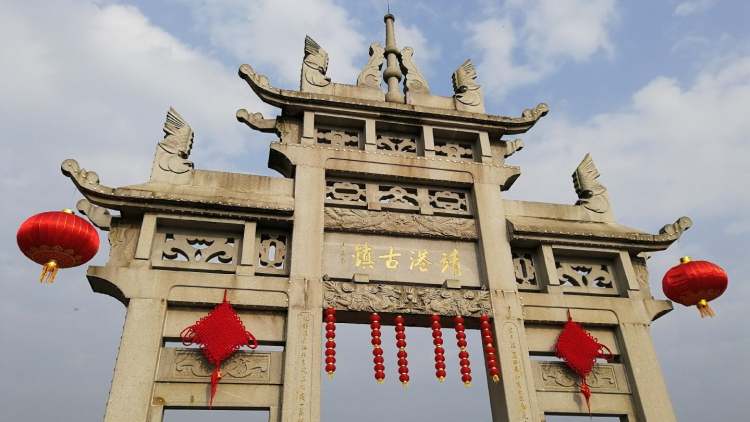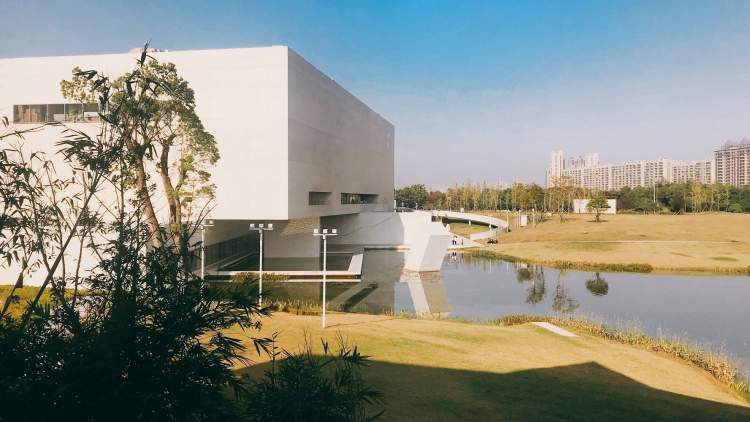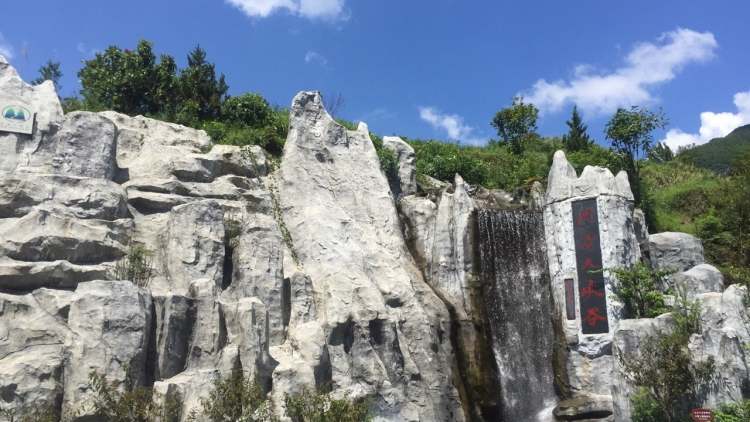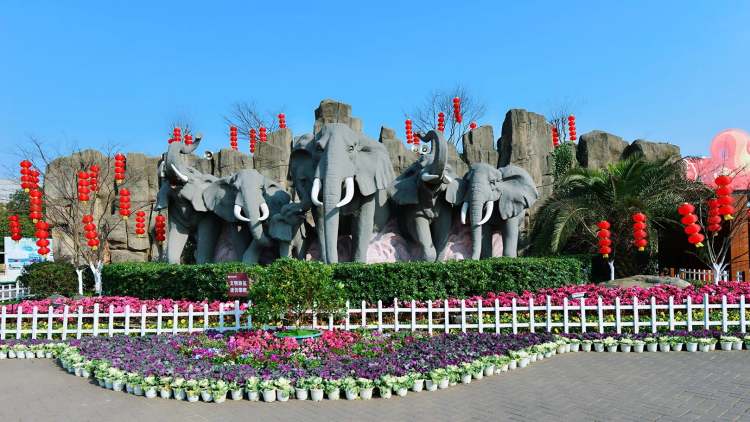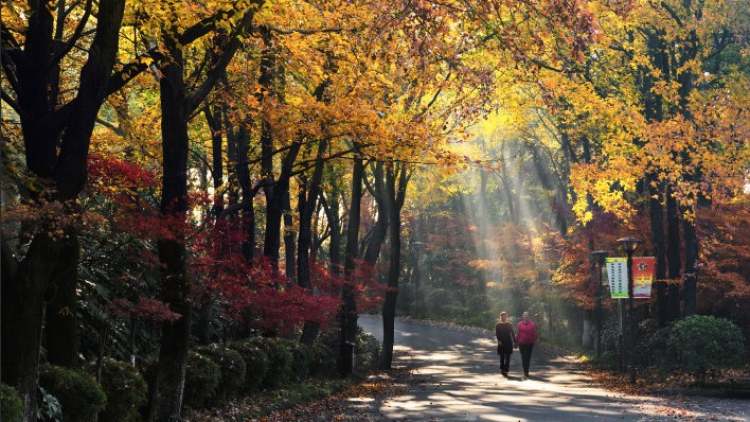Jinggang Ancient Town was originally Weishui into the mouth of the Xiangjiang River, so it is also known as Weigang, is a famous ancient town in Changsha, more than 30 kilometers away from the urban area. Many tourists have heard of the hazy Jiangnan town and visited the ancient and romantic Phoenix Ancient City, but they learned that the Jinggang Ancient Town is likely to be through Wang Han, the famous host of Hunan Satellite TV. He wrote in his book "Taste": "The beauty of Jinggang lies in the rhythm of its life, its stubbornness in maintaining its sense of time in the immediate vicinity of the city, where the waterfowl always return to their nests along a fixed route at dusk. This kind of description of the good feeling of Jinggang ancient town has affected many readers, and since then Jinggang has also begun to have a certain reputation in China.
Because of its special geographical location, Jinggang Ancient Town has always been an important military town in Hunan in the past. Legend has it that Li Jing, a general of the Tang Dynasty, had garrisoned the army here (the Ming Dynasty's "Unification Chronicles", the Qing Dynasty's "Changsha County Governance" has relevant records), because of its good management of the army, do not disturb the people, after Li Jing left, the local people in order to commemorate him will be renamed Weigang Jinggang. In the turbulent years, the veracity of the legend has yet to be examined, but its military status is also proven by historical evidence. In the fourth year of Xianfeng in the Qing Dynasty, the Taiping army occupied this place and fought a great battle with the water division of the Zeng Dynasty. Of course, the biggest advantage of Jinggang is its excellent water transportation. Located at the place where Weishui flows into the Xiangjiang River, Jinggang has always been a famous commercial port within a radius of 100 miles, known as "Little Hankou" (in fact, many ancient towns have this title). However, in 1957, the people's government considered the local flood hazard and diverted the water. Since then, Weishui has been changed from Xinkang Township in the south of Jinggang to the Xiangjiang River, and road freight has gradually replaced water transportation, and the prosperity of the ancient town has gradually dissipated. In recent years, tourism in the ancient town has gradually been taken seriously, so many buildings have been restored. However, it should be pointed out that except for a few old houses such as Ningxiang Hall and Hongtai Fang, most of the buildings are completely rebuilt. Therefore, it is difficult for tourists to see the wooden houses featuring the riverside stilt building in the past, and they are replaced by unified Hui style buildings.
There are ten major scenic spots in Jinggang, namely Hongtai Fang, Jiangnan Folk Cultural Relics Museum, the former site of the Hunan Provincial Party Committee, Ningxiang Hall, Genealogy Culture Hall, Dinosaur Fossil Museum, Chairman Mao's Handwriting Exhibition Hall, Tao Cheng's Former Residence, Hoe Heyuan, and Meteorite Museum. If you only visit the ancient town, you don't need to buy a ticket. Attractions will charge different ticket prices, but Guzhen also offers attraction packages, which cost 80 yuan per person. The popular Hongtaifang and Jiangnan Folk Heritage Museum are mainly recommended here.
Wang Tai Fang
I believe that many readers are deeply curious about the ancient Chinese Qinglou, and Hongtaifang is a Qinglou Culture and Art Museum transformed from the ancient Qinglou. It was built in the seventh year of Yongzheng in the Qing Dynasty (1729) and is one of the best-preserved Qinglou ruins in China. This renovated brick and wood institution has a total of three entrances, and the interior decoration is antique, and the charm of the past still exists.
Hongtai Fang mainly tells visitors about the historical development and demise of the Qinglou through pen and ink, engraving, pottery and other forms. The whole square is not big, but there are many rooms. Most of the rooms for viewing are placed with lifelike wax figures, and the front of the house is also equipped with text explanations, with just the right background music, to show visitors the ups and downs of life in the old days. Hongtaifang also specially reproduces many allusions and scenes of ancient famous prostitutes to show the fate of ancient beauties. It is worth noting that the building of Wang Tai Fang uses a large number of wooden planks, and there will be a noticeable sound when visitors step on it. In addition, the light in the room is relatively dim, the atmosphere is slightly scary, and the statues of people everywhere also give people a sense of horror from time to time.
It should be reminded that the exhibition content in some rooms of Hongtai Square is somewhat "inappropriate for children", and it is not recommended for tourists to bring children to enter.
Jiangnan Folk Museum
Although named the Jiangnan Folk Cultural Relics Museum, the museum mainly displays local folk cultural relics from the Ming and Qing dynasties in Hunan (of course, from a geographical and meteorological point of view, Hunan is also considered "Jiangnan"). The whole cultural relics museum is composed of thousands of ancient shrines, sedan chairs and treasure halls. The Thousand Ancient Shrines display 36 statues of large gods and many smaller gods. These statues are at least 100 years old, and they have a strong sense of age. The sedan chair hall and the treasure hall are to display many common items of ancient people during celebrations and sacrifices, such as sedan chairs and masks, reflecting the unique local folk customs of Hunan.
The number of tourists in Jinggang Ancient Town is relatively small now, so the modern commercial atmosphere is not strong. Many of the shops are run by locals, and the goods are produced and sold by themselves. Jinggang fragrant dry, easy to remember sweet wine, and stammering cake are all famous snacks in the ancient town, which are worth trying.
Information Reference
Entrance fee to the ancient town: free (80 yuan/person for the attraction package)
Opening Hours: Open all day



